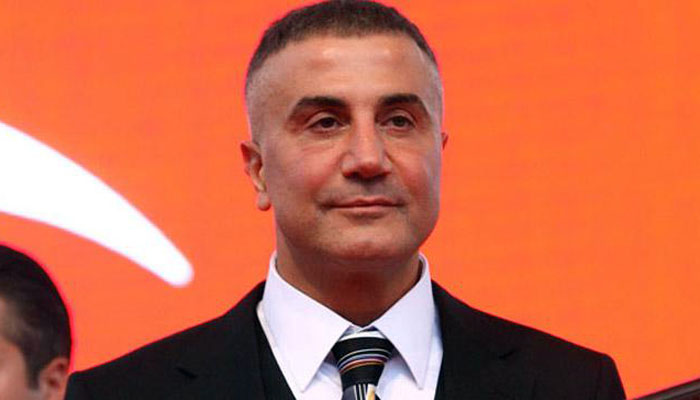Pro-government ultranationalist Turkish mafia leader Sedat Peker, who had threatened signatories of the Academics for Peace (BAK) declaration of Jan. 11 2016, has defended his threat towards the BAK signatories, the Diken news website reported on Tuesday.
Calling his threats leveled against the academics “criticism,” the notorious mafia leader said: “These words were merely criticism. This should be deemed to be within the bounds of freedom of expression.”
A few days after the peace declaration was issued, Peker had threatened the signatories, saying, “We will shed your blood in streams and we will shower in the blood that we shed.”
Peker was taken to court on accusations of issuing a threat and incitement to commit a crime, carrying a prison sentence of between one and four years to 11 years.
Peker, who failed to attend the first hearing in the trial, appeared at the Anadolu Courthouse on Monday and gave his defense regarding his threatening speech, which had taken place at a public rally in Rize.
The Academics for Peace declaration was titled “We will not be party to this crime” and criticized the Turkish government for its violation of human rights and civil casualties among the predominantly Kurdish population of eastern Turkey. A total of 1,128 academics from various disciplines, mainly in the social sciences, signed the peace declaration, a number that more than doubled with the support of many other academics, artists and public intellectuals from around the world.
The Academics for Peace demanded that the Turkish government put an end to blockades and curfews in Kurdish towns, avoid targeting civilians in the conflict with the militant Kurdistan Workers’ Party (PKK), reinstate necessary conditions for a cease-fire with the militants and ultimately secure an atmosphere for a sustainable peace between the Kurds and the Turkish state.
Published in early 2016, the peace declaration accuses the Turkish government of carrying out heavy-handed operations in Turkey’s southeastern region, where outlawed PKK militants and the military have been engaged in clashes since the breakdown of a cease-fire between the two in July 2015.
It was signed by more than 2,000 intellectuals from both inside and outside Turkey, including US philosopher Noam Chomsky.
The peace declaration frustrated President Recep Tayyip Erdoğan and the Justice and Development Party (AKP) government, leading to retribution against the academics. Some of the insults Erdoğan used against them included “so-called intellectuals,” “a flock called intellectuals,” “traitors” and “rough copies of intellectuals.”
Hundreds of academics who signed the declaration were detained when police raided their homes and offices across Turkey after the declaration was announced on Jan. 11, 2016, while hundreds of them were removed from their jobs.
More than 400 of the signatories working in Turkish universities were dismissed for having signed the declaration, considered to be disseminating terrorist propaganda by the Turkish government.



